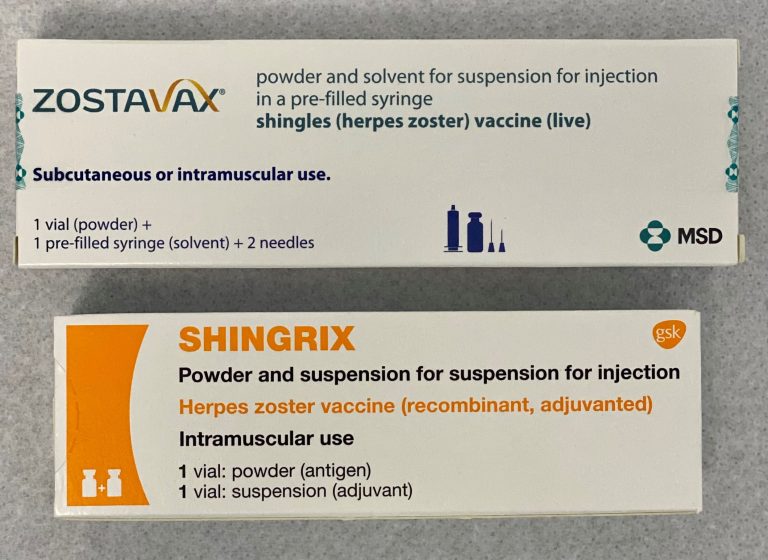GlaxoSmithKline plc (LON:GSK) today announced the US Food and Drug Administration approved the company’s supplemental New Drug Application for Zejula (niraparib), an oral, once-daily poly (ADP-ribose) polymerase (PARP) inhibitor, as a monotherapy maintenance treatment for women with advanced epithelial ovarian, fallopian tube, or primary peritoneal cancer who are in a complete or partial response to first-line platinum-based chemotherapy, regardless of biomarker status. Until now, only 20% of women with ovarian cancer, those with a BRCA mutation (BRCAm), were eligible to be treated with a PARP inhibitor as monotherapy in the first-line maintenance setting.
Dr. Hal Barron, Chief Scientific Officer and President R&D, GSK, said: “Women with advanced ovarian cancer have a five-year survival rate of less than 50%. This expanded indication means that many more women with this devastating disease can receive earlier treatment with Zejula, which can extend the time it takes for their cancer to progress.”
Zejula is the only once-daily PARP inhibitor approved in the US as monotherapy for women with advanced ovarian cancer beyond those with BRCAm disease in the first-line and recurrent maintenance treatment settings, as well as late-line primary treatment settings.
This new indication is supported by data from the phase III PRIMA study (ENGOT-OV26/GOG-3012), which enrolled patients with newly diagnosed advanced ovarian cancer following a complete or partial response to platinum-based chemotherapy regardless of biomarker status. The PRIMA study enrolled women who had higher risk of disease progression, a population with high unmet needs and limited treatment options.
Dr. Bradley Monk, PRIMA investigator, US Oncology, University of Arizona College of Medicine, Phoenix Creighton University School of Medicine at St. Joseph’s Hospital Phoenix, said: “PRIMA was designed for patients with ovarian cancer who have a high unmet need. The positive data observed regardless of biomarker status in this study is extremely encouraging and suggests benefit beyond the BRCAm population. This approval is an important step forward in the treatment of ovarian cancer. In my opinion, maintenance treatment with niraparib should be considered an option for appropriate patients who responded to first-line platinum-based chemotherapy versus active surveillance.”
The primary endpoint in the PRIMA study was progression-free survival (PFS) analysed sequentially, first in the homologous recombination deficient (HRd) population, then in the overall population. The PRIMA study significantly improved PFS for patients treated with Zejula, regardless of biomarker status. In the HRd population, Zejula resulted in a 57% reduction in the risk of disease progression or death vs. placebo (HR 0.43; 95% CI, 0.31 to 0.59; p<0.0001), and a 38% reduction in the risk of disease progression or death vs. placebo in the overall population (HR 0.62; 95% CI, 0.50 to 0.76; p<0.0001).
Zejula’s safety profile, as demonstrated by the PRIMA results, was consistent with clinical trial experience. The most common grade 3 or higher adverse events with Zejula included thrombocytopenia (39%), anaemia (31%) and neutropenia (21%).
At initiation of the PRIMA study, patients received a fixed starting dose of 300 mg of Zejula once-daily. The study was later amended to incorporate an individualised starting dose of either 200 mg or 300 mg of Zejula once-daily based on the patient’s baseline weight and/or platelet count. Lower rates of grade 3 and 4 haematologic treatment-emergent adverse events were observed with an individualised starting dose, compared to the overall population, including thrombocytopenia (21% compared to 39%), anaemia (23% compared to 31%) and neutropenia (15% compared to 21%).
The Zejula US prescribing information has been updated to include the individualised starting dose of 200 mg or 300 mg once-daily based on patients’ baseline weight and/or platelet count for the first-line maintenance treatment indication. The starting dose for recurrent ovarian cancer and late-line treatment settings is 300 mg once-daily.
“It’s so important for patients with ovarian cancer to have treatment options, and this approval is positive news for our community,” said Audra Moran, President and CEO, Ovarian Cancer Research Alliance. “PARP inhibitors represent a major advancement in the fight against ovarian cancer, and having a new first-line maintenance option for platinum-responsive advanced ovarian cancer patients – regardless of BRCA mutation status – is especially exciting. We are determined to keep funding research and partnering with scientists who are on the frontline of finding new treatments like this one to help those impacted by this disease.”
PRIMA study results were previously presented at the 2019 European Society for Medical Oncology (ESMO) Congress and published in the New England Journal of Medicine.
Zejula is not approved for use in first-line maintenance treatment outside the US.
About Ovarian Cancer
In the US, ovarian cancer impacts nearly 222,000 women annually, and it is the fifth most frequent cause of cancer death among women. Despite high response rates to platinum-based chemotherapy in the front-line setting, approximately 85% of patients will experience disease recurrence. Once the disease recurs, it is rarely curable, with decreasing time intervals to each subsequent recurrence.
About Zejula (niraparib)
Niraparib is an oral, once-daily PARP inhibitor that is currently being evaluated in multiple pivotal trials. GSK is building a robust niraparib clinical development programme by assessing activity across multiple tumour types and by evaluating several potential combinations of niraparib with other therapeutics. The ongoing development programme for niraparib includes several combination studies, including a phase III study as a first-line triplet maintenance treatment in ovarian cancer (FIRST).
GlaxoSmithKline in Oncology
GSK is focused on maximising patient survival through transformational medicines. GSK’s pipeline is focused on immuno-oncology, cell therapy, cancer epigenetics and synthetic lethality. Our goal is to achieve a sustainable flow of new treatments based on a diversified portfolio of investigational medicines utilising modalities such as small molecules, antibodies, antibody drug conjugates and cell therapy, either alone or in combination.









































